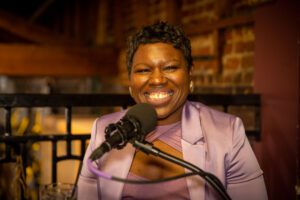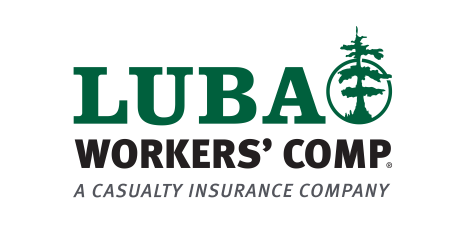In 1992 during Bill Clinton’s presidential campaign, LSU grad and Clinton Chief Strategist James Carville came up with two slogans for Clinton to focus on: “The economy, stupid” and “Don’t forget about healthcare.”
Today, politicians and citizens alike are very aware of both of these issues, which are more or less now combined in what is called The Care Economy. Even if you haven’t heard of The Care Economy you’ve benefited from it. It’s an umbrella term economists have developed to describe a wide range of support services — health, counseling, teaching, childcare and more. Put together, it’s a $650 billion market worldwide, according to the World Economic Forum.
At its most basic level, The Care Economy is about supplying for basic needs that in turn are necessary for people to work and thrive. Think about that through the lens of healthcare. For many people, navigating the healthcare system can be complicated, costly, or even out of reach. And that’s where Ashley Ophre comes in.

Ashley Orphe, CEO of Southwest LA AHEC, bringing community healthcare into the community – get your blood pressure taken at the barbershop or hop in the “boobie van” and get a breast cancer screening
Ashley is the CEO of the Southwest Louisiana Area Health Education Center, or SWLAHEC, which, if you’re recounting this to a friend, is pronounced “SWAH LA HECK.”
SWLAHEC is one of many AHECs across the country. They were established by the U.S. government in the early 1970s as a way of addressing healthcare shortages. SWLAHEC operates about four dozen different health promotion and access programs.
Ashley comes to this work from a personal place. She lost her mother to breast cancer at a young age. The diagnosis was late in part because of her mom’s lack of means. She started as COO of SWLAHEC in 2022 and stepped into the CEO role in 2024, where she oversees dozens of health initiatives across 13 parishes.

Lenita Turner, at Little Scholars in Abbeville they’re preparing kids for future success by giving pre-kindergarten education that studies show can set a person up for a lifetime
Child care is another big part of the care economy. Lenita Turner has dedicated her life to it. After years in public schools, Lenita founded Little Scholars Learning Center in 2016. It’s a daycare center in Abbeville that focuses on high-quality early childhood education, preparing kids for kindergarten and beyond.
The center offers classes for children ages one year through four years plus summer camps, holiday camps, and afterschool programs for kids ages four through ten. The learning center currently has almost one hundred children enrolled and employs twenty people.
Keeping enough staff is a key challenge across the childcare industry. Lenita’s approach is to over-staff to make sure she has enough people on hand to operate.
Lenita also runs a nonprofit, the Vermilion Women’s Resource Center, which helps families with education, employment coaching, and essential supplies.

Lenita Turner, Ashley Orphe, Christiaan Mader, Dylan Babineaux, Out to Lunch at Tsunami Sushi
Out to Lunch Acadiana was recorded live over lunch atTsunami Sushi in downtown Lafayette. Photos by Astor Morgan.





